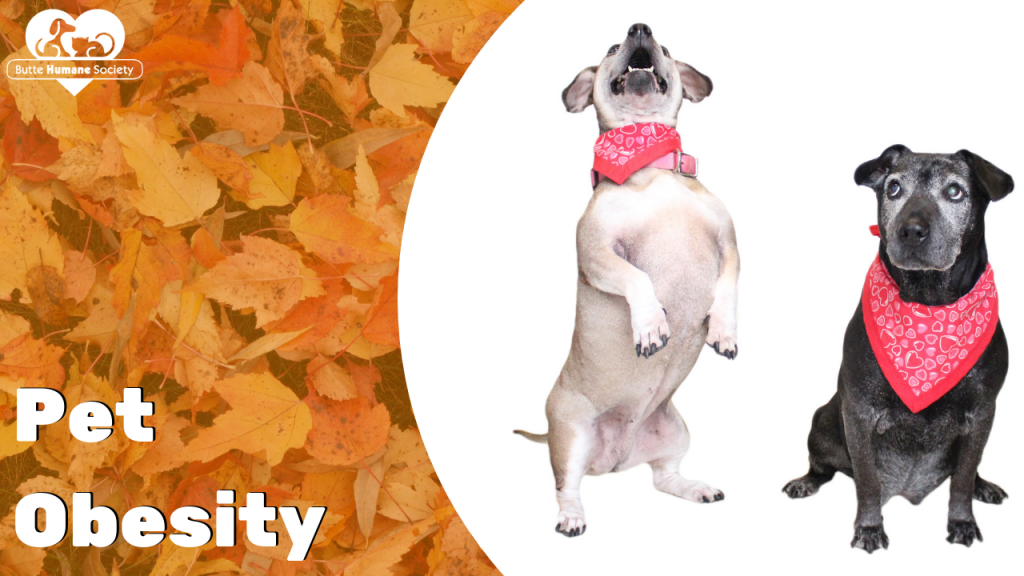
It is often said that pets with a little extra “fluff” just makes them extra cute, but did you know that obesity in cats and dogs can lead to long term medical issues and shorter lifespans? It is estimated that 58% of cats and 53% of dogs in the U.S. are overweight! Dogs and cats that have put on some extra pounds are more likely to suffer from arthritis earlier in life. Cats in particular are also highly susceptible to diabetes, and can have difficulty grooming themselves (which is an essential trait of a healthy cat). Often, contributing factors to having overweight pets are things like over-feeding, “free feeding” (i.e. letting your pet eat as much as they want whenever they want as opposed to have a scheduled feeding time with measured amounts of food based on your pets weight/age), lack of exercise, and giving too many high calorie treats or table scraps. If you think your pet may be overweight, there are some steps you can take to help them slim back down to a healthy weight for their breed. The first step is to make an appointment with a veterinarian to determine just how overweight your pet is, and make sure that there are no underlying health problems that have been caused by their excess weight- that way a plan can be put together to get your pet back on track to a healthy weight. At home, things like increasing activity levels, cutting back on the amount of treats per day, and following a measured guideline for feeding the appropriate amount of calories for the weight your pet should be at are easy and afforadable ways to help cut back on extra pounds. Want more info? Check out this article on the AVMA website! If you would like to set up an exam to assess your pet’s weight and get them on track to better health. Please contact our clinic for an exam at 530.343.7917 x 202.